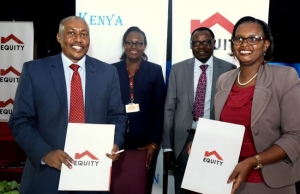
Administrator
PRIVATE SECTOR AND TVET DEVELOPMENT
Technical & Vocational Training (TVET) is education and training that equips young people with relevant skills and knowledge, with emphasis on honing practical skills in careers like; plumbing, mechatronics, nursing, masonry, culinary arts among others.
Looking back, TVET in Kenya can be traced to colonial times, when apprenticeship was the way people acquired skills. This continued after independence and well into the early 90’s, with TVET evolving through different education systems, yet retaining its focus on hands on training.
However, in the mid 90’s this began to change due to the competitive nature of examinations and emerging emphasis on high scores and academic performance, which for a time resulted in the purging of practical subjects in high school like art and craft, wood work and carpentry. Inevitably, TVET suffered and for a long time there was very little interest in hands on training.
In 2013 Kenya embarked on TVET reforms to address this matter and enacted the TVET ACT 2013. The ACT enabled the operationalization and regulation of the sub sector making it possible for TVET institutions, especially private institutions to operate within stipulated guidelines and structure, focusing on competency based education and training.
The stakeholders in TVET ecosystem can be defined to include; the government, private sector (industry/training providers), regulators, certification bodies and students. It is important to understand how private sector is incorporated as a TVET strategic partner. This will help unlock some of the key challenges which have created bottlenecks in actualizing the TVET reforms.
In the larger scheme of things, the involvement of private sector will help alleviate the growing unemployment problems in Kenya and help integrate young people into the job market. This is especially true in the current situation which has been made worse by COVID-19 pandemic. According to KNBS statistics as at March 2020 the unemployment levels in Kenya stood at 10.4%, with COVID it is possible it most probably worsened.
That said, the role of private sector as envisaged in the wider TVET ecosystem is to; provide support in curriculum development, identify gaps in the curriculum, guide and recommend occupational standards, participate in sector skills advisory councils and advise on labor market demands.
Countries, such as Germany, Finland and the Netherlands have developed their technical workforce by having robust partnerships between TVET institutions and industry. This is demonstrated by their widely successful industry-academia linkages, which have contributed immensely to the development of their economies. In their case industry provides opportunities for apprenticeship for TVET students and also provides part time trainers. Other ways in which private sector is involved, is when they participate in knowledge exchange and skills mapping. By doing this they help provide requisite information on skills which are in demand now and in the future. The job market is very dynamic and constant labour market information is critical to inform research and policy direction in skills training, in any country.
It is expected that by 2023, Kenya will be training about 3million young people in TVET institutions. This is because of the 100 % transition directive which requires every student graduating from secondary school to be enrolled in a tertiary institution. As the country experiences positive growth in the numbers of young people joining tertiary education, there needs to be concerted efforts to ensure that they get employment opportunities upon graduation. A good beginning would be to institutionalize internship, mentorship and apprenticeship programs. This will not only allow them gain soft skills training but will also enhance the quality of TVET graduates.
Another significant role played by private sector, is complementing government efforts by providing training in private TVET colleges. According to Education statistics available to (Kenya Private Sector Alliance) KEPSA, there were over 600 registered private TVET institutions with a population of over 260,000 students.
This complements government’s responsibility of providing education to young people to further their tertiary education. Investors in private training institutions contribute immensely to the economic development of the country, creating direct employment to thousands of trainers and non-teaching staff at absolutely no cost to the tax payer.
As the country focuses on growing a competent and skilled population, constant and adequate interaction between and among stakeholders in the TVET ecosystem is necessary for the successful implementation of TVET reforms. There is certainly, great potential and promise that can be achieved through these collaborations. By working together, industry and TVET institutions can improve the quality of graduates and this will help advance the TVET reform agenda.
FACILITATE PARENTS TO DIGITIZE THEIR SCHOOL CHILDREN
The Digital Learning Program was an inspired vision. Not only is it good for the erstwhile standard one, now grade one pupils, but it is good for students all through high school and into higher levels of learning. To place a laptop in the hands of every student is to give them the keys to succeed in today’s rapidly growing digital economy. Nobody will argue against this very practically visible truth.
However, we must have a transformational discussion on how to meet this vision. Whereas the architects of the idea envisioned the government, with its largesse, buying and giving a laptop to every child, reality checks this design and its flaws.
First, a laptop is a personal device that students and their parents own and take care of. This is very different from putting up a building that is taken care of by government employees such as school staff. Also, a laptop and a textbook have very different requirements for handling and use with the former needing a lot more care.
Second, the age-old question of budgetary and financial ability of the government to supply every learner with a laptop comes to the fore. Of course, as with most public projects, this can partially be solved by having the proposed phased roll-out. However, the laptops needed today and those needed ten years into the future are completely different species. Students who need computing devices today need them today, that is just the reality.
The shift in thinking, therefore, must be underpinned by our national realities. Many parents would be happy to have their children get laptops for education and other developmental uses. However, our country is a notoriously cash driven economy. For most, lack of the full amount of money, in cash, to buy a computer means that they cannot acquire it.
Is there a way where all school fees paying parents can get laptops for their children and pay for them slowly? Like they do for school fees or textbooks? Of course, one does not buy all the textbooks that their child will ever use in school on day one, but rather buys them as the years and terms roll out.
This is where government largesse should come into play. Government starts by leading the way in national thinking. Every school-going child must have a laptop. It also paves the way in piloting and getting the models right. Picking the right tools for the right jobs, so to speak. At the end of this, government should have clear results on what works and what doesn’t thus de-risking the way for parents and suppliers. Now every parent will be forearmed with minimum specification details before delving into the laptop-buying market. Just like they do before they buy textbooks.
The line ministries should then use their hard-working communication machinery to sensitize all parents on the importance of embracing technology for their children. This being our country though, big questions will come their way on how anybody can afford these important gadgets. Here is where we should tap the ingenuity of our enterprises. It surely cannot be difficult to engage banks and saccos by giving them a list of faithfully school-fees paying parents, can it? Showing that even though one device may cost tens of thousands of shillings in a one-off purchase, these parents can pay a fraction of that every term.
It will also be incumbent on the government to assure the suppliers, both of the devices and the finances, that there is a large enough market in Kenya to support their enterprises. There should also be tough measures taken on anyone dealing in stolen education devices as this is tantamount to economic sabotage, digital version. The government must then empower and encourage schools to share any information needed by the financiers to help establish credibility.
The icing on this digital cake will be the hundreds, if not thousands, of technical jobs that would open up around the country. These millions of laptops and computers would need a huge army, albeit decentralized, of maintenance and service technicians. Our youth, who many a time languish in unemployment, would have their first real chances at business or employment updating anti-viruses and fixing broken screens. This would have the ripple-effect in employability similar to the burger-flipping tales from the West, but that is a story for another day.
That said and done, it is still a duty for government to ensure equality in the country. While many parents will jump at the opportunity to provide laptops for their children where they make small payments every school term, there are others who simply cannot afford it. This is the area where government should play. It should provide the devices only for those who have no other way of affording them. This would be practical and logical use of the country’s budgetary resources. Even then, there will be need for clarity on whom assumes the cost of ownership: maintenance, updates, upgrades and security of devices bought by the government.
With over 10 million students, the education sector can lead the way in digitizing our economy. Its sheer size and spread can support a large network of big and small service providers. These would in turn also benefit all other sectors of the economy making digitization of the entire nation more achievable. What we need is a realistic and viable plan. Facilitation of parents to buy, own, maintain and upgrade laptops and other computing devices affordably for their children.
After leading with the piloting and creating an enabling environment for parents to acquire the devices, government should focus on what it does best. Continuously develop the supporting infrastructure needed for true digital learning. It is a bygone conclusion that every corner of the country must be blanketed with high-speed, broadband Internet connections. Nothing adds value to a computer like a connection to the Internet. This, of course, means that electricity connection either through the grid or through various renewable energy sources is not even up for discussion. We cannot talk of Internet-enabled computers that have no power and the same goes for digital learning. For us to succeed, therefore, let the government do its work, parents play their role and the indefatigable Kenyan enterprise players do their part.
NAVIGATING TVET IN THE 21ST CENTURY ECOSYSTEM
Since Technical and Vocational Education and Training Authority (TVETA) was operationalized in 2014 to regulate and coordinate TVET in the country, the Authority has achieved a lot within a short time culminating in today’s landmark celebration of ISO 901:2015 Certification.
Our reporter caught up with TVETA’s Director General/CEO Dr. Kipkirui Langat to find out more about what this milestone means to the Authority, the TVET sub-sector and the country in general.
How does it feel to be ISO 9001:2015 Certified?
It feels great and gives us as the TVETA family a sense of fulfilment because we have worked hard in the last one and half years to achieve this status. We launched the Quality Management System (QMS) in July, 2019 and at the time there were many transformations taking place in the Authority including implementation of a Management Information System (MIS) that has automated our services including accreditation of TVET institutions, and programmes and the licensing of trainers/ assessors and verifiers. However, Covid-19 slowed our progress towards implementation of the system but we are delighted we are finally there.
What does this ISO certification mean to the Authority?
The attainment of ISO Certification by the Authority means that the Quality
Management System (QMS) we are implementing has been audited and found to comply with the requirements of ISO 9001:2015 Quality Management Systems. In other words, the QMS which has been implemented complies with ISO 9001:2015 Standard, TVETA QMS documents and legal and regulatory requirements.
As an ISO certified organization, what is your philosophy?
As an Authority we were created to regulate and coordinate the TVET subsector in Kenya through the development of a TVET system that meets national needs and aspirations. Our vision is to see the country having a competitive market driven TVET system delivering competent workforce for sustainable development. We value integrity, professionalism, accountability, public participation, teamwork and efficiency. ISO has assisted us by making us appreciate the value of planning and monitoring in our management processes.
What are some of the factors that enabled you to attain this new status?
There are several factors that contributed to the success of this achievement. These include the commitment by our Board of Directors to provide the much needed resources and roadmap for the implementation of these standards. I also recognise and appreciate TVETA staff who worked round the clock to implement the set roadmap to certification.
How was the road map like?
We started by training process owners on implementation. Then the process owners developed Quality Management System documentation, which included policies, procedures, forms and registers needed for the implementation of quality management system. We then appointed ISO champions, who have worked with members
of their departments towards the launch of QMS in July 2019. For successful implementation, we trained the champions on audit who then carried out two internal audits in November, 2019 and in February 2020. Each of those audits was preceded by a management review meeting.
What are the ISO quality management principles? And how are you leveraging on the principles to achieve your mandate?
The ISO 9001:2015 quality management principles are leadership commitment, process approach, continuous improvement and riskbased thinking. Others include evidence-
based decision making, customer focus, engagement of people and relationship management. As the leadership of the Authority we are committed to the implementation and maintenance of the quality management system. This will then create buy-in by all members of staff. Every decision taken has a procedure and this enhances consistency and timeliness in service delivery. We have embraced continuous improvement in our management processes, which has increased customer satisfaction to our services. We have incorporated risk management in all our processes and this has been achieved by putting in place risk assessment and mitigation strategies.
Our services are customer centred and my team is always committed to ensure customer needs are met at all times. Greater clarity and focus on the Authority
objectives has led to increased staff motivation. Last but not least, we believe that for quality to be improved it must be based on evidence. For example, in the current financial year, we conducted an employee satisfaction survey. The recommendations from the survey are informing the various human resource decisions we are currently making.
You are the first Director General of TVET Authority. What are some of your successes?
As I mentioned earlier, the Authority came into existence in 2014 as a result of TVET Act no. 29 of 2013. I was then appointed on 30th April 2015. Since then we have been able to achieve a lot. Together with the Board of Directors and the support of government, we have managed to set all the required structures and operating frameworks from scratch. This include recruiting a competitive pool of staff for all the departments according to our staff establishment. We have also secured sufficient office space at the headquarters in Nairobi and we are in the process of opening three regional offices in Eldoret, Kisumu and Mombasa.
In terms of regulation, we have developed a number of regulatory and training standards for the sector. These include the National polytechnic standard, ODEL
standard, CBETA standard, Centre of Excellence Standard, Prior Learning and Assessment Recognition (PLAR) Standard, among others. We have been able to accredit more than two thousand TVET institutions while we have conducted quality audits in more than 1500 institutions. In addition, we have been able to implement a management information system which has enabled us to improve service delivery.
Parting shot as for the ISO certification today…
I want to express my sincere gratitude to the TVETA Board for the support and providing an enabling environment through provision of requisite resources and encouragement; all the staff at TVETA for their dedication, commitment, devotion
for better service delivery and the desire to achieve our objectives. May I also commend the Ministry of Education for the policy direction that has guided us sufficiently since inception, the ISO steering committee and internal quality audit team and Kenya Bureau of Standards (KEBS) for their immense contribution that has enabled us to achieve this milestone.
MUTHEU KASANGA: THE TRAILBLAZING EDUCATIONIST
Ms Kasanga has been at the pinnacle of education advocacy and lobbying for the past eight (8) years. Our Editor, Priscilla Kerebi spent some time with the educator to gain insights into the person and her contributions to the sector.
Who is Mutheu Kasanga?
I am an educationist having been in the sector for the past two decades. My passion for education has afforded me the opportunity to be at the helm of Kenya Private Schools Association and Kenya Private Sector Alliance for the past 5 years. It has been both exciting and challenging but mostly I have learned quite a bit on the policy and management of the sector.
WHAT MOTIVATES YOU?
Knowing that what I do provides opportunities for children to access education and succeed in their pursuit of quality education.
I WOULD IMAGINE AFTER 5 YEARS AS CHAIR OF KPSA YOU HAVE HAD MANY ACHIEVEMENTS. WHICH ONES STAND OUT FOR YOU ?
The roll out of the current competency based curriculum,being the single biggest event in education in Kenya the CBC, where children are engaging with the curriculum from inception into school in a trickle up manner unlike the 8-4-4 curriculum which was introduced at out at exit.
I have experienced growth in the Association which has increased its national footprint to all 47 counties. The Association has also been represented in all government endevours to ensure inclusivity.
The National Executive Committee has been passionate about partnerships and collaborations both locally and in the Global arena. The global collaborations include GESS, who hosted their 1st Leaders in Education Summit in Nairobi, Kenya in partnership with KPSA. In response to the COVID 19 pandemic, the Association was the only private partner included in the Global online learning Alliance, GOLA to strengthen education technology. Similar interventions with Global Peace Foundation a partner who provided a platform during the pandemic to schools to discuss the impact and how to survive the pandemic.
WHAT HAVE YOU LEARNT FROM THE COVID-19 PANDEMIC AND HOW DID YOU MANAGE TO DEAL WITH THE CHALLENGES THAT CAME ALONG WITH THE CRISIS?
Wow! This was a real shocker to all educationists world over. Never did the education sector imagine a time that learning would stop.. No one knew the trajectory the virus was going to take and by mid - April, 2020, 93% of the world had their basic education stop for more than 9 months. Private schools suffered the biggest brunt, because by end of April, 2020, schools could not sustain their payroll. The Association had to issue an advisory on unpaid leave to cushion the schools and employees, negotiate with banks, government and other suppliers and advise on labour issues. KPSA guided schools to move towards online learning to keep learners engaged and lobbied government to allow schools to offer online learning.
WHAT IS THE HIGHEST PRIORITY FOR PRIVATE EDUCATION PROVIDERS AT THIS MOMENT?
Recovery is the main priority for schools. Seeking interventions from partners especially financial institutions. Cementing gains made especially using education technology as private schools lead uptake of online and distance learning. There are opportunities in CBC especially Junior secondary, this is the time to ask those interested to invest in this space to start now. Private schools can now shift the narrative about excellence by moving to secondary schools to offer specialized training as envisioned in the curriculum. There is continued negotiation with financial institutions to support the expansion of facilities for junior and senior secondary schools. The sector has got only 2 years to prepare for this.
HOW CAN YOU PROPOSE TO ADDRESS THE CHALLENGE OF ONLINE LEARNING IN EDUCATION?
A National Distance Learning Strategy to provide a road map on how education technology can embed teaching to bring equity to the sector. The strategy will support learning during disruption and down turn like we are currently experiencing so that the industry doesn’t need to ever shut down again if a crisis of similar magnitude happens again. This would act as a disaster preparedness management
DO YOU FORESEE EDUCATION BEING DIFFERENT AFTER THE PANDEMIC? IF YES, HOW SO?
Unfortunately some areas of the sector will remain the same, like the pandemic never happened. But International schools and some private schools have embraced technology especially with blended learning to keep learning going.
CURRICULUM – HOW IS THE ASSOCIATION SUPPORTING THE GOVERNMENT IN ROLLING OUT OF THE CURRICULUM
KPSA has partnered with publishers to support the roll out of competency based curriculum focusing on milestones achieved annually. The Association also supports government on teacher training especially by staying up to speed with ICT
WHAT DO YOU LIKE TO DO IN YOUR FREE TIME?
I love to read. I enjoy the outdoors, watching wildlife, photography I have quite the collection on this, it’s amazing how you can understand so much about nature through the lens, blogging and farming, especially pig farming. I also love to travel, but in groups, I’m not a solo traveller. I am an amateur salsa dancer and I would love to sing in a band.
© Copyright 2025 EdSource Africa by BIL





